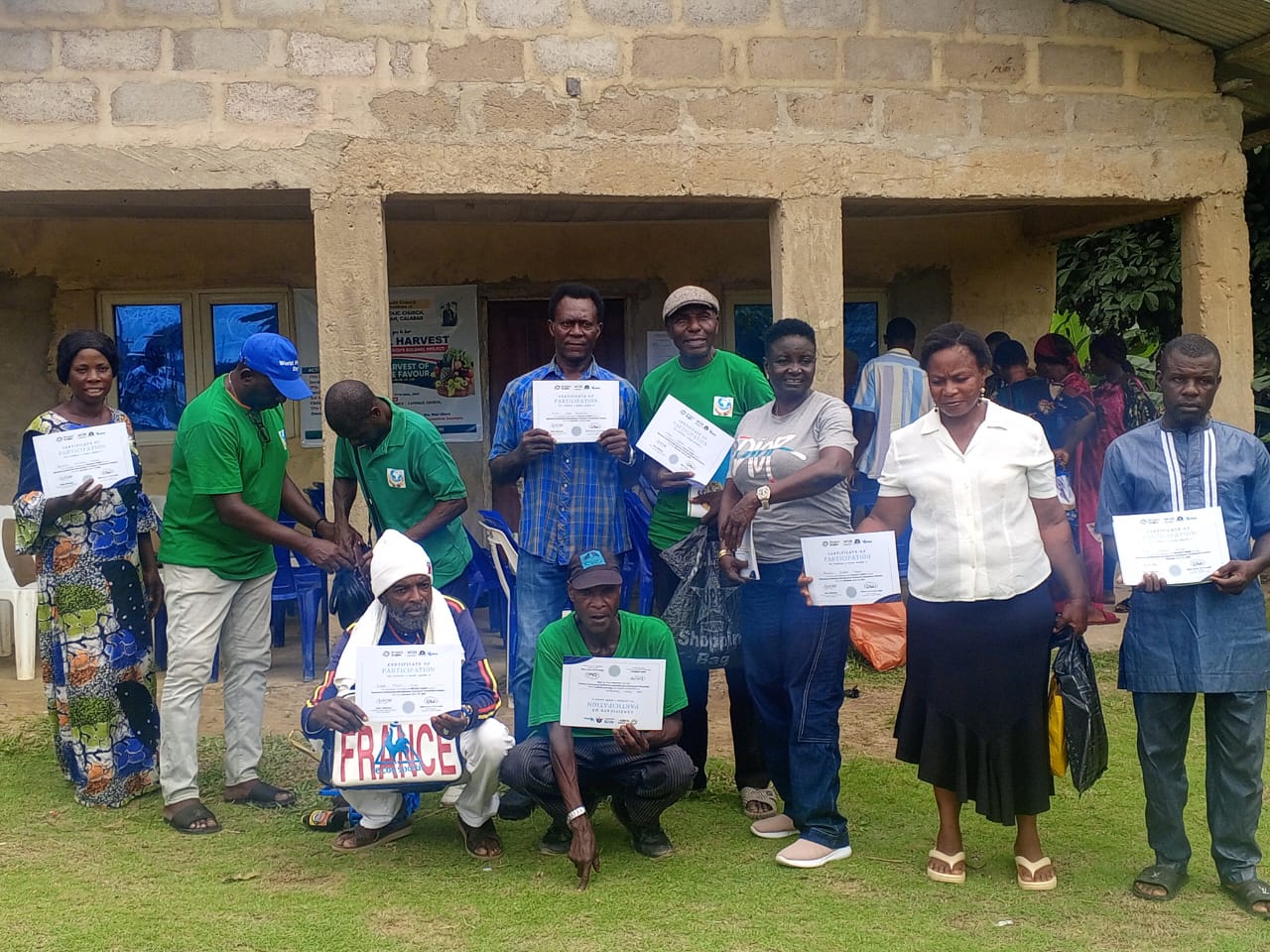By Christian Njoku
Mr Dennis Ikpali, Project Director of Cross River’s Project Grow initiative on Tuesday asserted that if they politicize food production as a state, they would not be able to politicize hunger when it comes with all its attendant problems.
Ikpali disclosed this in an interview with the News Agency of Nigeria (NAN) in Calabar while reacting to Cross River’s ongoing initiative in partnership with AFOS Foundation to train 5,000 farmers in the state every quarter for the next four years on Good Agricultural Practices (GAP).
NAN reports that Project Grow is a Public Private Partnership (PPP) project facilitated by Cross River to empower 100,000 agribusinesses of up to 40 per cent youths and women in the 18 Local Government Areas of the state.
The project director said the whole idea of the project was to increase and commercialize food production, adding that, the state’s population was growing and subsistence farming could no longer solve the challenge of hunger.
“To deliver our vision we started 54 training centres across the 18 LGAs to train farmers on GAP, financial literacy record keeping as well as cooperative management; this is to enable them synergize and aggregate their efforts to achieve more.
“The training is for 3 weeks, each batch of farmers trained for four days and certified at the end of the training and the next batch begins; our overall target for this quarter is to train 5,000 Farmers and link them to the banks for funding opportunities.
“We need to produce commercially through viable value chains that will create liquidity which will enable us overcome hunger, build food resilience and grow our economy,” he said.
On his part, Mr Olatunji Moses, Project Coordinator for the Small Holder Farmers Programme from AFOS Foundation, said the training focuses on small holder farmers in the maize and cassava value chain.
Moses who was impressed with the enthusiasm and response of the Farmers noted that the training was to equip them with the skills to enhance productivity and yield, especially income generation and profitability.
NAN visited four of the training centres in Calabar Municipality and Calabar South LGAs and spoke to Mrs Marian Kusi, one of the beneficiaries of the training and she said, although, she had been a farmer for years but had been making many mistakes.
According to Kusi, “I grow cassava, maize, water leaf and pumpkin but with what I have learnt in this program it is clear that I have been making mistakes in the past in fertilizer usage but with the training I will do exploits in my farm.
“I hope this training will also get to many of the farmers deep in the hinterlands where they lack access to proper information that can help them increase yield and come together as a cooperative to access aid,” she narrated.
(NAN)
